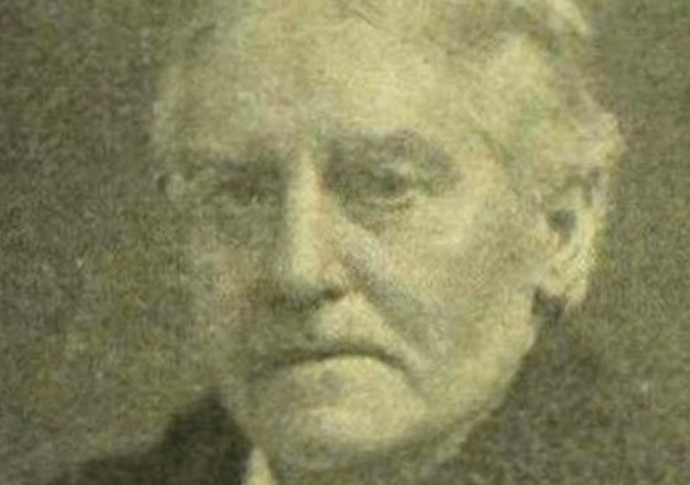The rebel priest who stood bail for Oscar Wilde
The Reverend Stewart Headlam revolted against the concept of the traditional parson, writes Neil Titley in his appraisal of this hot-tempered eminent Victorian
Friday, 13th June 2025 — By Neil Titley

ON the evening of May 25 1895, as some of the servants marched indignantly out of 31 Upper Bedford Place in Bloomsbury, a drunken mob smashed in the front windows. It was the home of the Reverend Stewart Headlam (1847-1924) and his crime had been providing the bail money for Oscar Wilde during his trial. With a guilty verdict against Wilde secured, British public morality was unleashed on anyone connected to the miscreant.
In fact, Headlam barely knew Wilde but had helped him out in the belief that no man should be prejudged. He was also one in a line of splendidly contrary priests that have ranged from John Ball to Bruce Kent.
Impetuous and hot-tempered, Headlam revolted against the concept of the traditional parson: “I have never been a believer in the literal inspiration of the Bible. I pin my faith to a Person, not to a Book.”
Between 1870 and 1882, Headlam was firstly a curate at Drury Lane, then at Bethnal Green, and then in two prisons. He became particularly fond of Bethnal Green – an area of London that an American visitor described as “the most appalling place on earth”.
(When the novelist Olive Schreiner told Wilde that: “I live in the East End because there people do not wear masks”, Oscar replied: “And I live in the West End because there they do.”)
When Headlam’s rector, Septimus Hansard, who shared Headlam’s radicalism, attempted to establish a Free Library in Bethnal Green to be funded from the rates, the slum landlords insisted on a poll among the ratepayers. Headlam was incensed when he heard that the landlords had threatened to raise the rents by sixpence a week if the library was built.
“Damn them all! The actual cost to them would be no more than a shilling a year.”
When Hansard and Headlam lost the vote, the anti-library churchwardens decided to ring a peal of church bells to celebrate their victory until they discovered that Hansard had hidden the key to the church.
Such incidents fuelled Headlam’s choleric denunciations of the rich and he was soon regarded as a liability by the ecclesiastical authorities. His pastoral homilies included an unorthodox view on temperance. He told one group of workmen to moderate their alcohol consumption on the grounds of avoiding waste: “Every one of you who takes more beer than he needs is guilty of a sin because he is wasting a good thing. He is wasting good liquor.”
He was removed from Bethnal Green after advising the young women of the parish to attend the theatres and music halls (then seen as the haunts of Satan).
Eventually he was asked to leave even his prison chaplaincy after making a speech in Trafalgar Square advocating the abolition of the House of Lords. The Bishop of London, Frederick Temple, revoked his licence for 11 years.
Headlam wrote to a friend: “Just got the sack for being political”, and mused over the possible wording of a newspaper advert: “Reverend Stewart Headlam sacked for the fourth time. Wants work.”
One of his lasting achievements was the creation of the Church and Stage Guild, an attempt to break down the prejudice against theatre in general and ballet in particular.
Predictably it was ridiculed by the press as “the society for administering weak tea to reluctant ballet girls”. Far from indulging in weak tea, Headlam preferred to accompany young actresses to such venues as the Crown Inn on Charing Cross Road where he mingled with the cream of the 1890s decadents.
By 1900, Headlam and the Guild had accomplished their aim and the theatre world was included among “the respectable”. Sir Henry Irving said: “People sometimes maintain that the stage is indebted to me for the greater esteem in which it is now held, but really, did they but know it, actors owe far more to that man Headlam.”
In 1886, Headlam joined the Fabian Society and continued to needle the right-wing by his support for the Bryant & May matchgirls’ strike. He helped form the Guild of St Matthew to develop Christian Socialism, and spent 17 years on the London County Council championing the poor.
As a further affront to the abstemious, he started the Anti-Puritan League, a society dedicated to conviviality whose members included the rotund bon vivant GK Chesterton.
Frederick Temple (Headlam’s nemesis during his curate days and with whom Headlam had had an especially fraught debate about whether ballet dancers were entitled to wear short skirts), had an intimidating reputation. When he later became the Archbishop of Canterbury, he sometimes examined candidates for the clergy himself, a nerve-wracking experience for the aspiring applicants.
During an interview, Temple tested one young hopeful on his ability to comfort the afflicted by asking him to role-play the part of a vicar visiting the sick.
“I will lie down on that sofa and pretend to be ill. You leave the room, come in again, and ‘hospital-bedside’ me.”
The young man followed the instructions and approached the prone archbishop. Tut-tutting censoriously, he sighed: “Oh Freddie, have you been on the booze again?”
• Adapted from Neil Titley’s book The Oscar Wilde World of Gossip. Available at Daunts Bookshop, South End Green
www.wildetheatre.co.uk